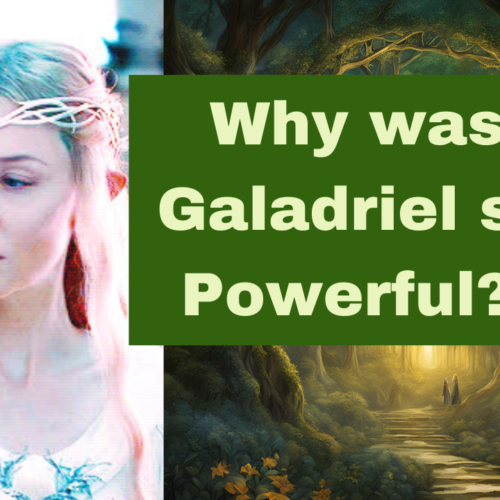The Elves leave Middle-earth at different points in time, with the last ship sailing sometime in the Fourth Age. It is commonly asked whether it was really fair for the Elves that leave Middle-earth when the time of war was looming. The most obvious answer was that the Elves ability to leave Middle-earth was known for longer than the War of Sauron.
However, there were still many elves who remained, such as Galadriel and Elrond, two of the bearers of the Three Rings.
It was even shown in the Peter Jackson films that once the fellowship sets out, there were elves leaving middle-earth never to return.
Why did they leave?
The elves would grow weary of Middle-earth, and this would result in fading. However, it seems to not only be fair but the only thing many could do.
It seems to be also dependent on when they were born. The bodies of the Elves were similar to that of Men, while the minds of the Elves were different to the point where they would have a perception of time that is unique to themselves. However,…
“This speed of growth and rate of ageing had nothing to do with the perception of time. As the Eldar say of themselves (and this may in some degree also be true of Men) when persons (in whole being fëa and hröa) are fully occupied with things of deep natural concern and of delight to them, and are in great bliss and health, Time seems to pass quickly and not the reverse. The Minute enjoyment and appreciation of events and thoughts in the time-series does not, as might be supposed, make time seem longer, as might a road or path that was minutely inspected. For that inspection would only be carried out by slowing the rate of normal travel.” (NoME, “Time-scales”)
Thus the Elves would not necessarily live slowly, despite living much longer than mortal Men. In fact, regardless of their perception of time, they still do think and move faster than mortal Men, likely causing them to be weary of their lives in Middle-earth.
Also, by the time of the Third Age, the Elves were not as keen on fighting battles as they were in earlier ages, when it seemed they’d have more activity.
“Many Elven-men were great healers as they were skilled in the lore of healing bodies, though such men abstained from hunting and went not to war until the last need.” (JRR Tolkien, “Laws and Customs of the Eldar”)
This was apparent in all of the ages but especially the third, during the time period before Sauron awakens and gathers his forces. While there were some elves in battle, many of them were not involved.
Why not go to Lindon?
After the War of the Last Alliance, most of the Elves have sailed west. Lindon became largely dispopulated with Círdan the Shipwright mainly building ships for Elves to sail west in. Lindon also suffered a great loss with the Downfall of Númenor and shrunk when the Third Age began.
After the king Ar-Pharazôn’s assailing,
“Númenór itself on the edge of the rift topples and vanishes for ever with all its glory in the abyss. Thereafter there is no visible dwelling of the divine or immortal on earth.” (Letter # 131)
Ar-Pharazôn had convinced himself that he would be just like Eärendil in that he would sail west, and the Númenóreans followed suit.
As a result, the Elves mourned the loss of the light and Lindon shrunk in size, leaving less space for the Elves to dwell there let alone build armies. Cirdan’s shipbuilding would be reserved mainly for the Elves to set sail.
“…the Númenoreans should not be tempted to seek for the Blessed Realm, not desire to overpass the limits set to their bliss, becoming enamored of the immortality of the Valar and the Eldar and the lands where all things endure.” (Silmarillion, “Akallabeth”)
Aside from Cirdan’s shipbuilding, the Elves who dwelled there (as well as Rivendell and Lóthlorien) in the Third and Fourth Ages were mainly there for two reasons: an unwillingness to leave and a sense of duty to the people of Middle-earth during the War of the Ring.
Thus, while it was still available to the Elves, many of them would see no need to remain, though there were few exceptions, such as the bearers of the Three Rings who have to remain until the Fall of Sauron with the destruction of the One Ring.
Equal vs fair
To say that the Elves should stick around in Middle-earth during the War of the Ring just because the others did would be a fallacy. While the Elves live longer than mortal Men, no one would really know that particularly based on their mind and spirit.
The Elves offered so much to Middle-earth. However, they are certainly not perfect as evident in the First Age, but many of them spent all the time they could. Much like Dwarves, Men, and Hobbits, there are Elves that are influenced by good and Elves influenced by evil.
The downfall of the Elves for the Men signifies the battles, as they’ve inspired the Men and hobbits to fight against Sauron in Middle-earth.


